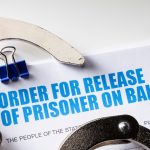In new cases, arrest warrants are often issued by judges for probation issues or failing to comply with court orders. While you are typically notified of an arrest warrant via telephone or mail, it is not uncommon to hear about it first “through the grapevine.” Having an open warrant can be stressful (especially if it is your first one, or you are wrongly accused), and it is best to turn yourself in before an arrest is made.
Meet with a lawyer. Retaining a criminal defense attorney can help you in numerous areas. They can help review your case, explain possible options and outcomes, as well as develop a plan of action on how to proceed. Doing this first may allow more time to negotiate and gather bail money and prepare statements. And chances are, you will need an attorney if the case proceeds.
What to dress and bring. Wear comfortable clothes but don’t look sloppy. Limit the items you bring with you and make sure you bring cash or cards with you if you plan to pay bail immediately, plus basic identification documents.
Miranda rights. When you turn yourself in and are arrested, you will be read your Miranda Rights. These statements allow you to remain silent for any questions other than your name, age, and date of birth from the arresting officer. If you do speak with law enforcement, it implies you are waiving your right, and anything you say can be used against you in court. Ask for your attorney to be present for any further questioning if you wish to exercise your right to remain silent.
For more important tips on turning yourself in on a warrant, or to learn about AAA Bail Bond services contact us here.


